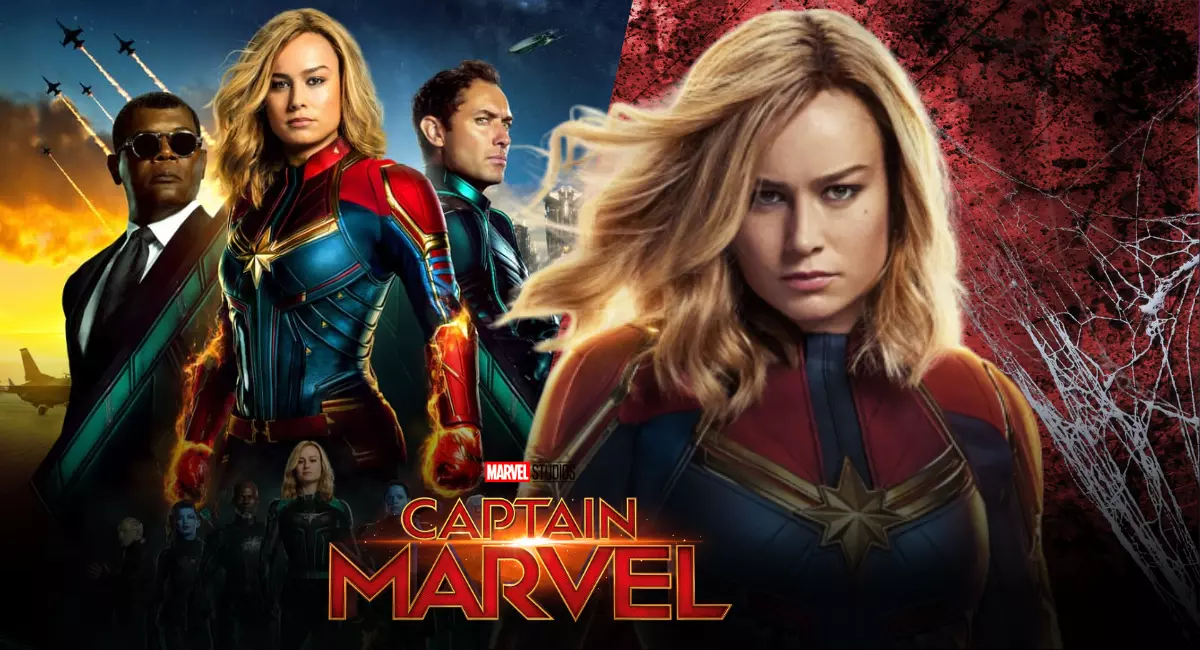The executive producer of Captain Marvel recently defended the choice to exclude a romantic male counterpart for Brie Larson’s Carol Danvers.
On November 10, The Marvels, the follow-up to Captain Marvel, will be released in theaters.
Marvel Studios published a four-part series titled MPower on Disney+ to recognize the MCU’s most significant female characters, with each episode focusing on a different female character.
The Captain Marvel episode notably emphasized the intimate bond between Carol and Maria Rambeau, played by Lashana Lynch, and how crucial that is to the MCU as a whole and to all the female characters.
Also, Read Does Captain Marvel 2 Have a Problem? a fresh rumor suggests sequel issues
Why Romance Isn’t Necessary for Captain Marvel

The President of Physical, Post Production, VFX, and Animation at Marvel Studios, Victoria Alonso, explained why Carol Danvers doesn’t require a male love interest in the Captain Marvel episode of Disney+’s new MPower series.
Editor for Captain Marvel Debbie Berman noted in the episode that “there’s no romance” in the movie.
The absence of a romantic partner for Captain Marvel was justified, according to Alonso, because “it didn’t offer anything to the tale.” She also brought up the friendship between Carol Danvers and Maria Rambeau, calling it “wonderful”:
It’s one of the most lovely friendships we’ve created in the Marvel Cinematic Universe, so there was no need to have a male counterpart, she said.
The two characters’ friendship was described by Larson as “humbling” because true love “doesn’t have to be romantic:”
“Her best friend plays the role of her true love in this movie. It’s also depressing because you understand that love doesn’t always have to be romantic. It might be an intense friendship.”
The Guardians of the Galaxy actress Zoe Saldana noted that two women who have a good bond “are enough for each other”
“What if one woman is only a friend to another and that is sufficient for them both? And they give each other the impression that they can take care of themselves.”
Iman Vellani of Ms. Marvel also discussed Carol and Maria’s relationship, claiming that “they have this really healthy love:”
“Carol and Maria have a strong, mutually trusting relationship. They were the only ones who could support one another and be there for one another when times became tough.”
The MCU’s normalization of friendship

Superhero movies have a history of featuring the main character juggling a love interest with their perilous lifestyle.
Steve Rogers had to decide whether to remain with Peggy Carter or save many people, and Tony Stark had to give up his ideal family life to bring back half of humanity. Clark Kent struggled to make a relationship work with Lois Lane.
A male/female romantic relationship seems to be implicitly assumed in these kinds of movies and for these characters.
Nevertheless, Captain Marvel not only disproves that idea but also fundamentally alters our understanding of the value of genuine friendships.
Even though Alonso claimed that Carol’s love interest “didn’t add anything to the tale,” one could counter that it would have done the opposite.
The film demonstrated that a woman didn’t have to require a male equivalent to lean on and that Wanda Maximoff’s connection with Vision didn’t have to mean anything less to Carol and Maria.
In the end, Captain Marvel succeeded in normalizing close relationships between characters without romanticizing them.
Also, Read Disney Reveals New Crew of Heroes for Avengers 5

